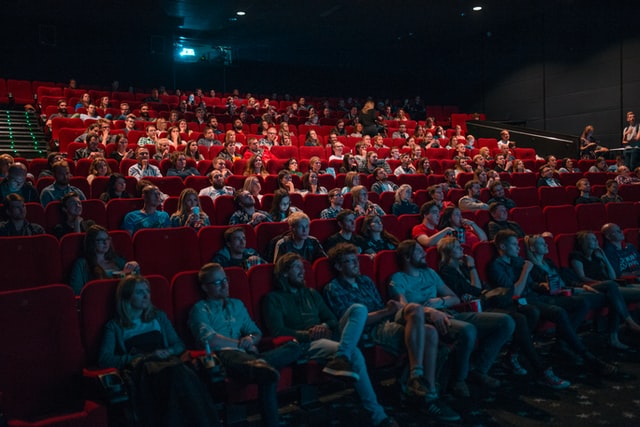Do you need to be a film major to make a movie?
“Give up everything and start making movies!” If you are a passionate fan of the film industry, such a thought must have slipped in your head at least once. But while quitting can be easily arranged, making a movie is a bit more difficult.
Do I need to get a degree to create a pure masterpiece of the film industry? Isn’t imagination and a creative approach the only things needed? If only everything were so simple…
Nowadays, the role of higher education is underestimated. Indeed, students are more likely to start searching for a job just after finishing school or while studying at the university. Therefore, the process of getting an education takes a back seat without the chance to be completed. In many countries today, young people are consciously refusing to pursue higher education – it is unclear why they need it.
On the one hand, spending at least four years at the desk is considered to be a waste of time. Indeed, just imagine how many films can be made during such a period of time! On the other hand, higher education not only broadens the horizons but also gives technical knowledge and skills indispensable for a job as a director.
Getting professional homework help such as custom writing at EssayPro makes the educational process much easier and pleasant. You no longer need to suffer from uninteresting tasks. Just get assistance and focus on your subject of interest.
This article aims to provide all possible pros and cons of getting a film major. This will help you make the right choice. Let’s not waste any minute and proceed to consider the features of this profession.
Benefits of a director’s diploma
In cinematography, the leading role is played not by actors or producers as it may seem at first sight. Directors are those people who have the primary responsibility. Thus, the highest requirements are within their duties.
Depending on the type of specialization, the main tasks of a movie-maker may vary, but the most important aspects of the work include
- cooperation with scriptwriters, producers, and all the participants of the process;
- roles distribution and control of the actors’ performance;
- adjustments of lighting;
- examining footage and highlighting the best shots;
- instructions relating to the actors’ appearance;
- resolving issues and maintaining a favorable work environment.
If some of the roles mentioned can be performed without any special skills, the others require extensive knowledge of cinematography. It is worth noting that directors are unique professionals. They often combine work with related occupations and act as producers, screenwriters, and even actors. In such a case, the scope of their responsibilities is significantly expanded.
Moreover, the director’s role covers not only industry-related knowledge. Real masters of their occupation need to possess considerable expertise in arts, poetry, prose, history, and other related branches.
In the higher education environment, a person is forced to cooperate with others. This is of utmost importance for those making a movie in a team. Sharing tasks to somehow implement the overall idea is a skill that can be attained while studying.
The director’s occupation can not always be mastered independently or through specific courses. Self-education will not harm you, so you can learn the basic principles of directing online. But who will believe your words if they are not backed by experience?
Here comes one more reason for getting higher education: connections. It may sound materialistic, but a university is a place where you can establish advantageous connections and relations.
Achieving success without a degree
If you look at the examples of world-known directors, many of them, of course, have professional education. Still, you need to understand that they learn not the rules of making a movie but rather the laws of perception. To create a film, you need to possess only two main qualities. The first is the ability to tell a story in an interesting way. The second is the capacity to do it visually.
There is no doubt that this profession directly depends on talent. There is also a thought that a person of cinema must be a person of intellect and have certain leadership qualities. Yes, being confident in one’s success is always a prerequisite for a good result.
Remember your favorite movies and consider the career paths of the directors. Steven Spielberg was constantly getting his papers back when he tried to enter film school. Quentin Tarantino worked in video distribution to get some basic skills. David Fincher started making movies as soon as he decided to become a director at the age of 8. Ridley Scott, Peter Jackson, James Cameron – none of them spent a day at the Faculty of Film and Television.
Some most famous directors state that the best education one may get in the field of cinematography is to make a movie. Practice is the best friend of people of creative professions. No theory can replace real emotions generated in the process of filming.
James Cameron once said: “I didn’t attend any film school. Instead, I went to the library, read a lot, and made photocopies. How to become a director? Just grab your camera and start filming.” This simple piece of advice may seem odd, but it is the only way to create a personal filming style. Through self-education, one can develop a unique style free from imposed cliche.
If you are determined, here are some more recommendations for novice movie-makers.
Making an impressive movie without a diploma: Practical steps
- We live in the golden age when everyone has a personal digital camera in their pocket. All you need is to use this device in a proper way. Grab your phone, play with light, learn to adjust modes, and get the basic skills of a videographer. For example, documentaries are easier to make with a phone than with a professional camera.
- Watch as many films as possible. Do not neglect old movies that were released at the dawn of cinematography. Watch modern ones and consider different genres. Let it be the films of your favorite directors and those movies that they recommend. Even if you come across bad movies, that’s fine too. Learning from the mistakes of others is also helpful for “training your eye.”
- Search for a job that is closely related to cinema. For example, it can be the position of an assistant in the studio. Engaging in the shooting and production of commercials or clips is also promising. You can become a volunteer at film festivals. These kinds of activities will reveal a lot about the movie industry.
- Read biographies of some famous directors and books on filmmaking.
- Try yourself in writing a script for a short film involving other enthusiasts. Then, edit the film on your computer. You can start with short movies and gradually add complexity.
- Participate in a national or international movie festival. This is the only chance to show your talent. Upload your first creation to the Internet. Start a website or blog about your movie.
- Even if your film is not approved for taking part in the competition, attend all possible festivals. This will help you not only broaden your horizons but also make some interesting acquaintances.
Final words
Making films is a pure art of the modern world. It goes beyond all the rules or standards. To create a legendary movie, it is not necessary to finish university or complete a full course of studies. Talent, imagination, and persistence are three key elements of success. Still, getting professional knowledge will always help one stand out. So, “to be or not to be” a graduate of the Faculty of Film is a choice that depends on one’s personal opinion and feelings.























